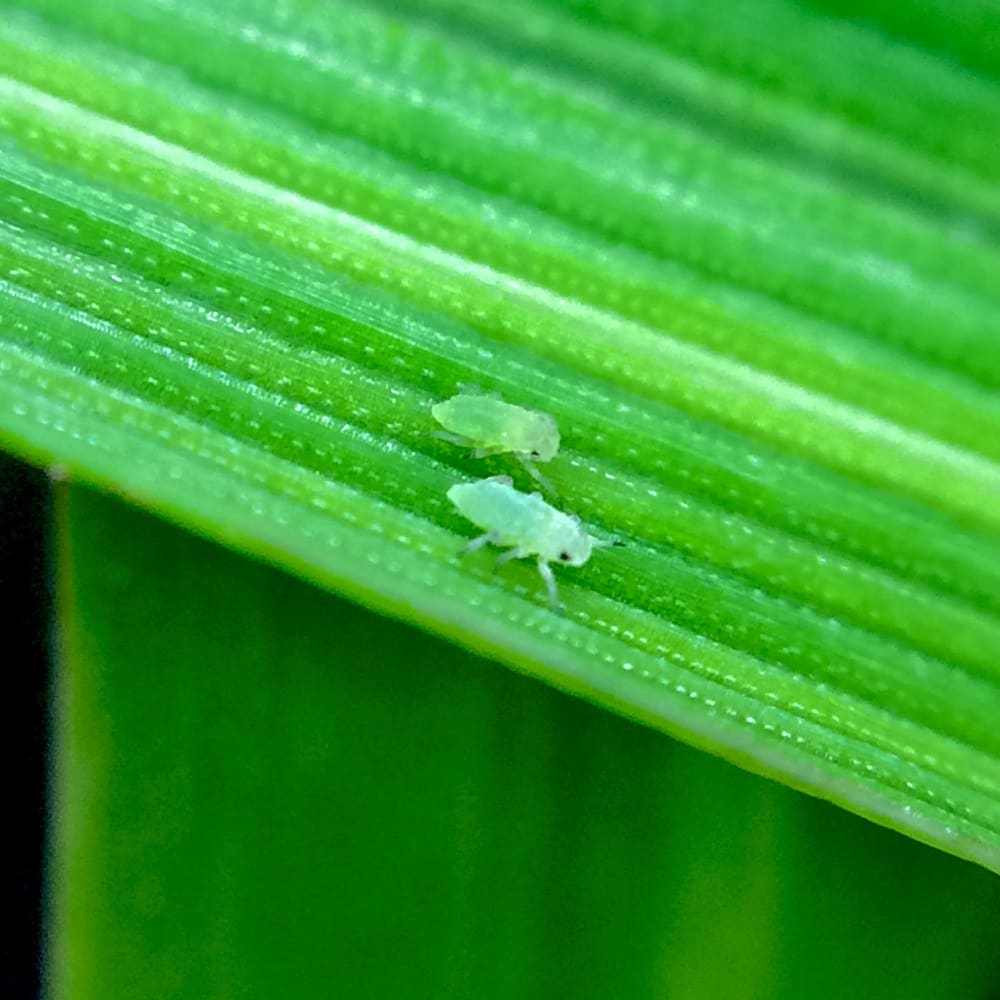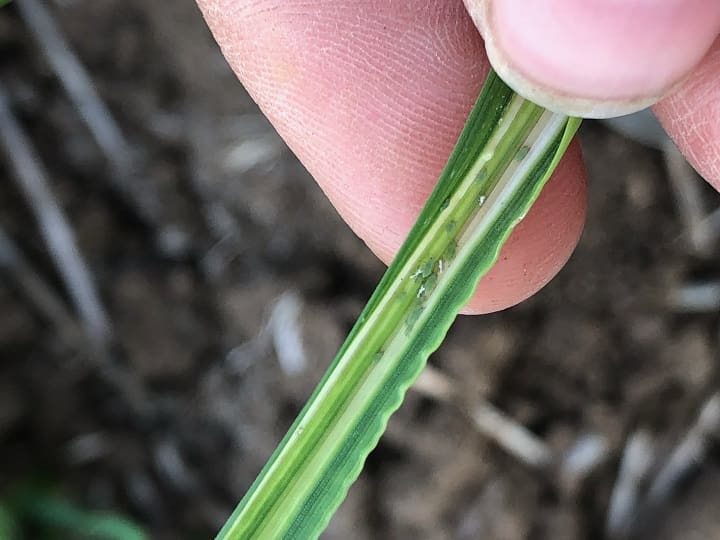
Russian Wheat Aphid is the latest broadacre crop pest to challenge the grains industry and was detected on the Liverpool Plains in northern New South Wales late last year. (Photo: GRDC)
THE steadyl spread of the Russian Wheat Aphid (RWA) from southern regions into the northern farming zone has prompted researchers to intensify their surveillance of the damaging crop pest.
RWA was first identified in South Australia in 2016 and is now present in many cropping areas of South Australia, Victoria, Tasmania and New South Wales. It has not been detected in Queensland to date.
The movement of RWA onto the Liverpool Plains of northern NSW late last year has prompted the extension of a pest surveillance study being led by researchers from the South Australian Research and Development Institute (SARDI), a division of Primary Industries and Regions SA.
The study is part of a wider investment by the Grain Research and Development Corporation (GRDC) in research into the pest.
Surveillance sites have now been extended to include locations in northern NSW and southern Queensland to investigate how RWA survives between winter cropping seasons.
This work will complement summer surveillance work in South Australia, Tasmania and Victoria.
The two-year-research project will investigate the role the green bridge plays in supporting RWA populations over the summer, and work to determine the regional production risks posed by RWA and the economic thresholds that will guide growers in effective management of RWA, taking into account growing regions, crop varieties and climatic conditions.
The aim will be to determine the risk of infestation and potential damage ahead of each new cropping season, as well as aiding RWA management planning and development of cultural controls.
Meanwhile, the current summer surveillance survey will focus on identifying RWA food sources and favoured weed hosts, with samples being taken from paddocks, fence lines and road sides, and relevant information being recorded including crops and grass species present, whether there are irrigated paddocks or waterways nearby, site topography, RWA growth stage, and the presence or absence of parasitoid wasps and beneficial insects.
Growers in northern NSW and southern Queensland are also being encouraged to perform their own RWA surveillance over the coming months.
 Weeds and volunteer cereals harbouring aphids may not necessarily show symptoms of infestation, so growers should closely inspect grasses by unfurling leaves and checking inside partially emerged heads, paying particular attention to annual weedy barley grass.
Weeds and volunteer cereals harbouring aphids may not necessarily show symptoms of infestation, so growers should closely inspect grasses by unfurling leaves and checking inside partially emerged heads, paying particular attention to annual weedy barley grass.
They should also look for signs of predatory insect activity, such as mummified aphid bodies resulting from parasitic wasps laying eggs inside the aphid.
Grain growers and agronomists will have an opportunity to hear the latest research and management tactics for dealing with RWA at an information session in Toowoomba on Monday (January 21).
GRDC crop protection officer north Vicki Green said the confirmation of RWA in northern NSW had concerned growers and agronomists, who were now keen to understand the latest management advice and tactics.
“The information session in Toowoomba coincides with researchers being in the region for this survey project,” Mrs Green said.
“The session will be an invaluable opportunity for growers and their advisers to hear directly from the researchers, who have been involved in studying RWA in southern regions and developing effective management strategies.
“RWA are a pest of winter cereals, but growers and their advisers have many questions about how summer rain and summer growing cereals and grass weeds impact on the survival of the pest. So it is important growers have a clear picture of how to manage the pest to reduce impact.”
Source: GRDC
The RWA information session will be held at 8am on Monday, January 21, at the Queensland Department of Agriculture and Fisheries (DAF) Conference centre, 203 Tor Street, Toowoomba.
For information on RWA management go to Tactics for Future Control publication, available at https://grdc.com.au/rwa-tacticsfuturecontrol as well as I SPY, a comprehensive crop insect identification manual, which can be viewed at https://grdc.com.au/I-SPY. A RWA resource portal hosted by cesar is available at http://bit.ly/2Px67tu.
Growers and advisers are encouraged to report occurrences of RWA to the Exotic Plant Pest Hotline on 1800 084 881. These reports will aid in improving understanding of RWA range and rate of spread.
The summer survey is part of a collaborative investment, ‘Russian wheat aphid risk assessment and economic threshold’, led by SARDI in partnership with sustainable agriculture research organisation cesar.

HAVE YOUR SAY